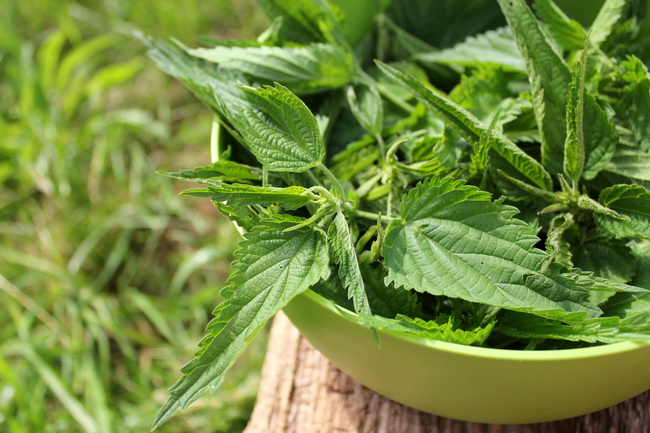- Make It Yourself Lavender Heart-Shaped Bath Bombs!
- 20 Things You Never Knew About “Down There”
- 12 Best Foods For Those Suffering From Arthritis Pain
- 12 Personal Hygiene Mistakes Almost Everyone Makes (Mom Never Told You About #4!)
- 15 Medicinal Plants And Herbs From The Cherokee People
- 12 Mind-Blowing Benefits Of Drinking Coconut Water During Pregnancy
- 12 Outstanding Winter Foods That Won’t Fatten You Up Like A Christmas Turkey
Best 15 Herbs To Beat Arthritis

Photo credit: bigstock.com
11. Devil’s Claw
Found in abundant quantities in South Africa, this herb has been used for centuries in traditional medicine for the treatment of arthritis like conditions. One species of Devil’s Claw, uncaria guianensis, has been shown to help those with osteoarthritis, while another species, uncaria tomentosa, is shown to be effective for those with rheumatoid arthritis. The active ingredient in this plant is found in its secondary root which contains highly anti-inflammatory compounds. In one study, which was published in Rheumatology Journal, found that devil’s claw extract was just as effective as the prescription drugs Celebrex or Vioxx.
12. Nettle
Stinging nettle is one of the most popular and potent herbal home remedies for arthritis. It has been used to treat numerous ailments, including gout, urinary tract infections, insect bites, tendonitis, sore muscles, joint pain, and arthritis. Studies show that a topical application of nettle leaf on the affected areas can significantly reduce the intensity of pain. The fine hairs on this plant release irritating chemicals when touched but at the same time, these nettles reduce the amount of inflammatory compounds in the body and interfere with pain signals. Dendritic cells play a big part in the development of rheumatoid arthritis. Studies have shown that consuming nettle extract can inhibit the growth of these cells, although it won’t kill them entirely.
13. Flax Seeds
Originally used as a laxative, scientists have found much better uses for these seeds. This herb has some potent substances and nutrients that can really help to fight arthritis. These seeds are super rich in a substance called ALA, or alpha-linolenic acid, a special type of omega-3 fatty acid that is very effective when it comes to fighting inflammatory diseases such as arthritis. More than 57 percent of the omega-3 fatty acids found in flaxseed are ALA. The body then converts ALA into PA, then DHA, which makes a type of anti-inflammatory fat. In one study, subjects who ate flaxseeds during a one month study had significantly reduced levels of inflammation.
SEE ALSO: 17 Simple Common Sense Home Remedies for Arthritis
14. Cayenne
The capsaicin content in this herb is known to be an effective and powerful pain inhibitor as well as inflammation reducer. Cayenne can reduce the pain associated with osteoarthritis in studies. It can also help to ease the symptoms of arthritis such as swelling, stiffness of the joint, and loss of joint function. Cayenne works by reducing the concentration of a compound that the nerve cells use to transmit pain signals to the brain. This herb is also rich in salicylates, which give it its powerful analgesic effects.
15. Dandelion
Most people think of dandelion as either a weed or a food, but it also has medicinal properties which are very helpful to those with arthritis. This herb has some nutritional value, including vitamins C, B, D, and A, along with iron and potassium. Dandelion also has anti-inflammatory compounds that make it effective in fighting the pain that comes with arthritis. Researchers believe that dandelion can flush toxins from the body which cause joints and muscles to become inflamed. Dandelion also reduces uric acid in the body, which can lead to pain and joint stiffness if left untreated.
The use of herbal medicines and treatments has exploded in the past 10 years. This means that many conventional doctors are more willing to assess and consider these treatments than they might have been in the past. When it comes to arthritis, some of these herbs are terrific compliments to current medications that you might be taking. However, that being said, some of these herbs can interfere with certain medications or even cause serious side effects or interactions. Always consult with your doctor and never stop taking prescription medications without speaking to your doctor first. You should also talk to your physician before you begin any herbal medication or treatment.
References:

































